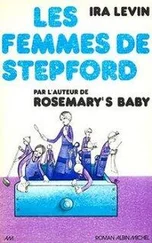“Frieda Maloney saw,” Liebermann said. “The babies were all alike, more than babies usually are.”
Lili made a spit-sound at the floor beside her. “She should die.”
“The name she used,” Liebermann said, “was Elizabeth Gregory. I meant to ask her if it was given to her or if she picked it herself, but I forgot.”
“What’s the difference?” Max asked, chewing.
Lili said, “ Gregory . The name Mengele used in Argentina.”
“Oh, of course.”
“It must have come from him,” Liebermann said. “ Everything must have come from him, the whole operation. He was signing it, even if he didn’t mean to.”
Some money came in—from Sweden and the States—and he booked a ticket to Washington via Frankfurt and New York, for Tuesday, February 4th.
On Friday evening, January 31st, Mengele was using the name Mengele. He had flown with his bodyguards to Florianópolis on the island of Santa Catarina, roughly midway between São Paulo and Pôrto Alegre, where in the ballroom of the Hotel Novo Hamburgo, decorated for the occasion with swastikas and red and black streamers, the Sons of National Socialism were holding a hundred-cruzeiros-ahead dinner dance. What excitement when Mengele made his appearance! Big Nazis, the ones who had played stellar roles in the Third Reich and were known throughout the world, tended to be snobbish toward the Sons, declining their invitations on grounds of ill health and making testy comments about their leader, Hans Stroop (who even the Sons would admit sometimes overdid his Hitler act). But here was Herr Doktor Mengele himself, in the flesh and white dinner jacket, shaking hands, kissing cheeks, beaming, laughing, repeating new names. How kind of him to come! And how healthy and happy he looked!
And was. And why not? It was the 31st, wasn’t it? Tomorrow he would paint four more checks on the chart and be more than halfway down the first column—eighteen. He was going to every dance and party available these days; a reaction, of course, to the anguish and depression he had gone through back in November and early December, when it had looked for a while as if Jew-bastard Liebermann was going to spoil everything. Sipping champagne in this festive ballroom full of admiring Aryans, some of the men in Nazi uniforms (squint a little: Berlin in the thirties), he was amazed to remember the state he’d been in scarcely two months back. Absolutely Dostoevskian! Plotting, planning, making arrangements to leap into the breach if the Organization betrayed him (which they had been on the verge of doing, there was no doubt of that ). But then Liebermann had led Mundt off on a tour of France, and Schwimmer through the wrong cities in England; and finally, thank God, had given up and stayed home, assuming, no doubt, that his young American stooge had been mistaken. (Thank God, too, that they had got to him before he had actually played the tape for Liebermann.) So we sip champagne and eat these delicious little whatever-they-ares (“A pleasure to be here! Thank you!”) while poor Liebermann, according to The New York Times , is off in the wilds of America on what, reading between the lines of Jew-controlled puffery, is surely a very small-potatoes lecture tour. And it’s winter there! Snow, please, God; plenty of snow!
He sat on the dais with Stroop at his left; was toasted by him most eloquently—the man wasn’t as much of an idiot as he’d expected—and turned his attention to the ravishing blonde on his right. Last year’s Miss Nazi she turned out to be, and small wonder. Though wedding-ringed now and—no fooling his eye—pregnant, four months. Husband in Rio on business; thrilled to be sitting next to such a distinguished…Maybe? He could always stay over; fly back bright and early.
While he was dancing with pregnant Miss Nazi, working his hand down gradually onto her really marvelous ass, Farnbach danced close and said, “Good evening! How are you? We heard you were here and came gate-crashing. May I present my wife Ilse? Sweetheart, Herr Doktor Mengele.”
He kept dancing in place and smiling, thinking he had had too much to drink, but Farnbach didn’t disappear or turn into someone else; he stayed Farnbach—became more Farnbach, in fact; shaven-headed, thick-lipped, introducing himself hungry-eyed to Miss Nazi while the ugly little woman in his arms yammered about “honor” and “pleasure” and “though you took Bruno away from me!”
He stopped dancing, freed his arms.
Farnbach explained cheerfully to him: “We’re at the Excelsior. A little second honeymoon.”
He stared at him, and said, “ You’re supposed to be in Kristianstad. Getting ready to kill Oscarsson .”
Gasp from the ugly woman. Farnbach went white, stared back at him.
“ Traitor! ” he screamed. “ Pig of a— ” Words couldn’t do it; he flung himself at Farnbach and grabbed his thick neck; pushed him backward through dancers, strangling him, while Farnbach’s hands pulled at his arms. Red-faced the no-word-for-him now, blue eyes bulging. Scream of a woman; people turning: “Oh my God!” A table stopped Farnbach, lifted its far side; people retreated. He pushed Farnbach down, strangling him; the table shot up, pouring dishes-glasses-cutlery as they fell before it, spilling soup and wine on Farnbach’s shaven head, washing his purpling face.
Hands pulled at Mengele; women screamed; the music splintered and died. Rudi tore at Mengele’s wrists, looking pleadingly at him.
He let go, allowed himself to be pulled up and away, set on his feet. “This man is a traitor!” he shouted at them all. “He betrayed me , he betrayed you! He betrayed the race! He betrayed the Aryan race! ”
A scream from the ugly woman kneeling at Farnbach’s side as, red-faced and wet, he rubbed his throat, gasping. “There’s glass in his head!” she cried. “Oh my God! Get a doctor! Oh Bruno, Bruno!”
“This man should be killed,” Mengele explained breathily to the men around him. “He betrayed the Aryan race. He was given a job to do, a soldier’s duty. He chose not to do it.”
The men looked confused and concerned. Rudi rubbed Mengele’s blotched wrists.
Farnbach coughed, trying to say something. He pushed his wife’s napkin-hand from his face and raised himself on one arm, looking up toward Mengele. He coughed and rubbed at his throat. His wife clutched his wet-darkened shoulders. “Don’t move!” she told him. “Oh God! Where’s a doctor?”
“They!” Farnbach barked. “Called! Me back!” A drop of blood slid down in front of his right ear and became a small ruby earring, hanging, growing.
Mengele pushed men away, looked down.
“Monday!” Farnbach told him. “I was in Kristianstad! Setting things up for”—he looked at the others, looked at Mengele—“for what I had to do!” His blood-earring dropped; another began growing in its place. “They called me in Stockholm and told”—he glanced toward his wife, looked at Mengele—“someone I knew there that I should come back. To my company’s office. At once.”
“You’re lying,” Mengele said.
“No!” Farnbach cried; his blood-earring dropped. “ Everyone’s back! One was at—the office when I got there! Two had already been! The other two were coming!”
Mengele stared at him, swallowed. “Why?” he asked.
“ I don’t know ,” Farnbach told him scornfully. “ I don’t ask questions any more. I do as I’m told .”
“Where’s a doctor ?” his wife screamed; “He’s on his way!” someone called from the door.
Mengele said, “I…am a doctor.”
“Don’t you come near him!”
Читать дальше











